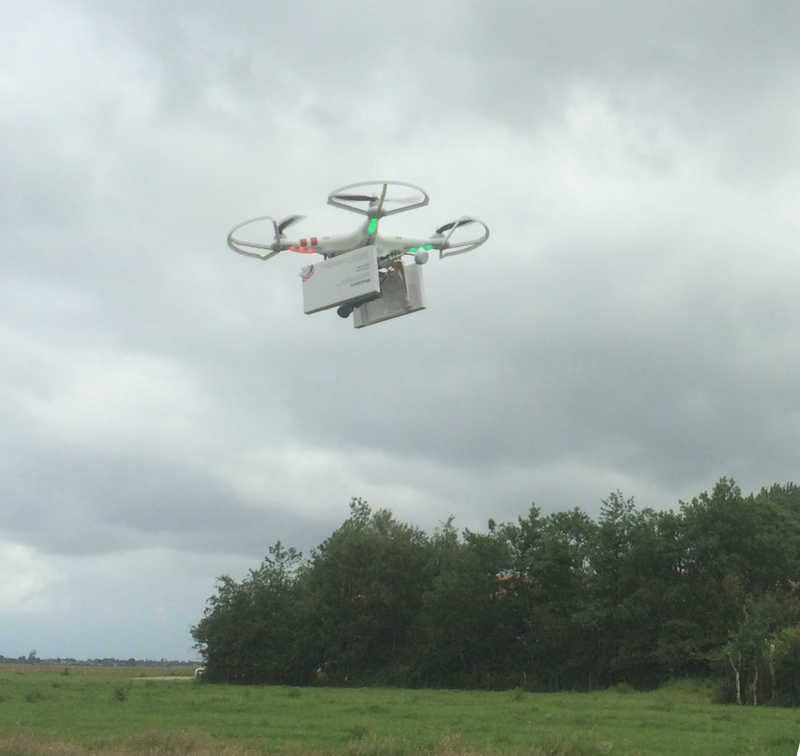In the wake of World War II, Soviet-occupied Berlin, Germany, was closed off to allied forces by Russians in hopes of cutting off supplies to U.S., British, and French occupants living in the city. In order to provide them with necessities to survive, the allied forces dropped food and supplies from planes. Nearly 70 years after the Berlin Airlift, an advocacy group based in Berlin is flying much-needed cargo out of the country and into another underserved area.
Women on Waves will be flying drones across the German border and into Polish territory to drop abortion pills from the sky. Taking off from Frankfurt and Oder, Germany, the remote-controlled device will fly less than a mile to Slubice, Poland, which sits just on the other side of the Oder River. There, it will deliver its package in hopes of helping to fight restrictive reproductive laws.
In Poland, abortions are only legally permitted in the cases of rape or incest, if the woman’s life is in danger, or if there is potential complications to the fetus. Polish law had outlawed the practice outright until 1932, when it was changed to allow a pregnancy to be terminated for medical reasons or if it was the result of a criminal act—a progressive rule at the time. The law reached its current form in 1993. In 1997, a modification to the law was enacted to allow abortions for emotional or social distress, but the Polish Constitutional Court deemed the change to be unconstitutional.
Women on Waves has orchestrated the drone drop to provide two-to-five sets of the abortion pills, which can be taken for pregnancies of up to nine weeks. The group has coordinated ahead of time with women living in Poland who want to receive the pill. While it is illegal to receive an abortion in the country, Women on Waves states that women in Poland cannot be punished for taking the pill or any actions that might lead to a miscarriage.
The drop itself will be conducted in a way to ensure the process meets all of the international drone laws in place in the country from which the drone will originate and where it will make the drop. Because the flight will not be for commercial purposes, will stay within the sight of the person flying, and won’t fly in any controlled airspace, it won’t require any permit or authorization.
While advocacy groups inside Poland are helping to make the airlift possible, public opinion remains very much opposed to making options for terminating a pregnancy more readily available. A 2014 poll conducted by the Centre for Public Opinion Research found 65 percent of Polish citizens deem abortion to be unacceptable. Support for the law as it stands is high, and 55 percent of those surveyed oppose abortion on request.
Even if the airlifted abortion pills reach their destination and provide a small group of women a viable choice when it comes to what to do with their pregnancy, it will be an uphill battle to enact sweeping change when it comes to the issue within Poland’s borders.
H/T Fusion | Photo via Nate Grigg/Flickr (CC BY 2.0)

